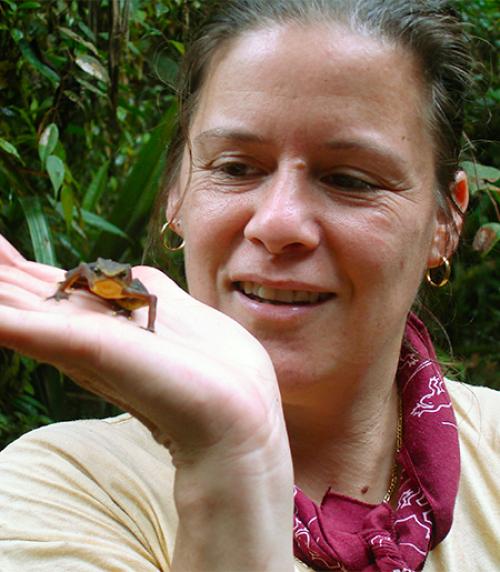Two Cornell faculty members with expertise in psychology and evolutionary biology have been elected to the American Academy of Arts and Sciences, the academy announced April 17.
Stephen Ceci, the Helen L. Carr Professor of Developmental Psychology in the College of Human Ecology, and Kelly Zamudio, the Goldwin Smith Professor of Ecology and Evolutionary Biology in the College of Arts and Sciences, joined 212 other newly elected fellows. Membership honors individuals for achievements in academia, business, government and public affairs.
Ceci’s research focuses on understanding real-world problems and settings. His work spans studies of intellectual development; children and the law; and women in science. Studies in his lab have explored the role context plays in shaping memory of discrete events, with this research informing the legal understanding of children’s cognitive competency to testify in court, including translational briefs to the U.S. Supreme Court.
Among other honors, he has received the lifetime achievement award from the American Psychological Association (APA), The Association for Psychological Science’s (APS) Catell Award for lifetime contributions, the American Academy of Forensic Psychology’s lifetime award, and the Society for Research in Child Development's Distinguished Scientific Contributions to Child Development Award; since 2014 he received the Division of Developmental Psychology’s lifetime award and the Division of Educational Psychology’s lifetime award. He serves on numerous editorial boards and has authored approximately 450 articles, books and reviews.
He earned his bachelor’s in psychology in 1973 from the University of Delaware, a master’s in development psychology in 1975 from the University of Pennsylvania, and his doctorate in development psychology in 1978 from the University of Exeter, England.
Zamudio, the faculty curator of herpetology at the Cornell University Museum of Vertebratesand professor in the Department of Ecology and Evolutionary Biology, is a leading researcher of evolution and conservation of biodiversity. Her work spans inquiries of population biology and genetics, and she studies population differentiation of amphibians and reptiles. Her studies look at various scales of microevolution, from individuals to populations to species. Findings from her lab have deepened understandings of biodiversity and population declines faced by amphibians, with a particular focus on the roles played by disease resistance and the toll of human activity on the landscape.
She earned her bachelor’s in 1991 from the University of California, Berkeley, and a doctorate in 1996 from the University of Washington.
David W. Oxtoby, president of the American Academy of Arts and Sciences, said of the new class: “With the election of these members, the academy upholds the ideals of research and scholarship, creativity and imagination, intellectual exchange and civil discourse, and the relentless pursuit of knowledge in all its forms.”
Newly elected fellows also include former first lady Michelle Obama; former Indiana Gov. Mitch Daniels; and leaders of companies and philanthropic organizations.
The new class will be inducted at a ceremony in October in Cambridge, Massachusetts.
This story also appeared in the Cornell Chronicle.




